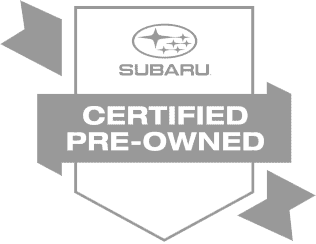
If you're on a tight budget and looking for a new vehicle, a damaged car can seem like a great way to save a lot of money. Damaged vehicles, such as hail damaged cars or flooded cars, often sell for significantly less than market value. However, it's important to keep in mind that often, these cars come with a lot of risks. You might save money upfront, but in the long run, they might cost you more than buying a car in good condition.
One of the biggest risks of damaged cars is that they may have been repaired haphazardly. Sellers may try to convince you that the damage is nothing to worry about, but you may not be able to spot all the problems at first glance. Structural damage is often hidden, and even if the car looks good on the outside, it could be rotting from the inside out. You could spend more on repairs than on a car in good condition.
Hidden Structural and Mechanical Damage
When you first see a damaged car, it may seem like it has been restored and repaired, making it a tempting purchase for those on a budget. However, the exterior may be deceiving, and there could be hidden structural and mechanical issues underneath.
If you are considering buying a damaged car, it is essential to recognize the risks involved with hidden damages. While it may seem like a bargain at first, it is crucial to weigh the potential cost savings against the potential long-term expenses. To avoid any potential issues, it is recommended that you consult a trusted mechanic or car specialist to conduct a thorough inspection before making a purchase.
Remember, appearances can be deceiving, and it is better to make an informed decision rather than regretting a potentially disastrous investment later on.
Unsafe to Drive
As a savvy buyer, you want to be sure that your investment is not only cost-effective but safe for both you and other drivers on the road. One of the main concerns when purchasing a damaged car is the increased risk of accidents it may pose.
For instance, if the car's frame is not properly restored, the car's stability and protection can be significantly compromised, which puts all occupants at risk of injury in the event of a collision. Additionally, the suspension system plays a vital role in the handling and stability of the car, and any damage to this component can lead to loss of control, unpredictable steering, and other handling problems that can be dangerous, especially at high speeds.
Obtaining a comprehensive vehicle history report can also help you make an informed decision about the safety and condition of the car. Your safety, as well as the safety of other road users, is a top priority when purchasing a car, and you should never compromise on it.
Potential Fraud
It's crucial to be aware of potential fraud when purchasing a damaged car. Some sellers may try to downplay the extent of the damage, making it difficult for buyers to verify the true condition of the vehicle. Even if the seller provides documentation of repairs, it's not a guarantee that the car is in good condition.
The problem is that exterior repairs are often easier to conceal, making it difficult for buyers to uncover hidden issues. A seller may go to great lengths to make the car appear pristine and well-repaired, only for you to discover later that it's actually in poor condition. The consequences? You'll find yourself with a damaged car that needs extensive repairs, and worse yet, you may have little to no recourse.
This is why it's crucial to take precautions when purchasing a damaged car. Don't rely solely on the seller's word and documentation. Instead, conduct your thorough inspection or seek the assistance of a trusted mechanic. Look beyond the shiny exterior and dig deeper into the condition of the car's critical components. It's essential to know what you're getting into and ensure that the repairs made were adequate.
Difficult to Resell
When considering buying a damaged car, one aspect often overlooked is the potential difficulty in reselling it. While you may be getting a great deal upfront, it's essential to consider the long-term implications and the challenges you may face when it comes time to sell the car yourself.
Even if you've made all the necessary repairs and ensured the car is in good working condition, the tainted history of the vehicle can still cast a shadow of doubt on potential buyers.
The demand for damaged cars is significantly lower than new ones or second-hand cars. This limited demand means you may have to lower the price to attract buyers, resulting in a financial loss. Furthermore, the longer it takes to sell the salvage car, the more it depreciates, further impacting your ability to recover your investment.
So, before buying a damaged car, consider the potential challenges you may face in the future when it's time to sell. Assess whether the price you're paying now justifies the difficulties you could encounter.
The Verdict
Buying a damaged car may initially seem like a cost-effective option, but it comes with potential risks and challenges. Hidden structural and mechanical damage could lead to costly repairs, making it necessary to have a trusted mechanic inspect the vehicle before purchasing. Damaged cars are also less safe to drive, as compromised stability and handling can increase the risk of accidents. Additionally, potential fraud from sellers who conceal the extent of the damage could leave you with a car in poor condition. Lastly, reselling a damaged car can be difficult due to limited demand and the depreciating value. It's important to weigh the potential short-term savings against the long-term risks and challenges before buying a damaged car or maybe skip that damaged cars for sale sign the next time you're on a hunt for a new car.






